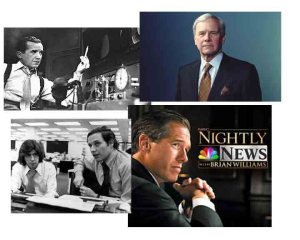It’s happening again. I can feel myself being pulled back in.
My Mom and I sat in the highest balcony at Gammage Auditorium last night and mouthed every word of West Side Story. We were offended when the producers of the show’s revival added a scene that wasn’t in the original. We didn’t like when they switched the order of the songs. But we still cried when Maria sang her final farewell to Tony, kneeling beside his dead body on the dark streets of New York — ahem, I mean, on the stage in Tempe.
Oh no. It’s all downhill from here.
I just spent the last hour watching every scene that’s posted on YouTube from the original 1961 movie of West Side Story. (“A Boy Like That” is my favorite, thanks to the fiery Rita Moreno). And, on the drive home from the theater last night, I played selections from Wicked on my iPod because it’s the only musical soundtrack I have on there. Lucky for anyone sitting in a car next to me at any red light on the way, I drove with the top down on my convertible and could be heard clearly, belting out every note.
The Cult of the Musical has a strong pull on a generation of women like me (and our mothers). It’s an obsession that usually rests nascent in the back of our minds as we go about our everyday lives as seemingly normal people — until we hear a Sondheim melody or see a Fosse dance move. Then, the obsession is triggered and it could be weeks before we are back to normal.
It’s not our fault. We were raised on musicals.
In fact, most of my childhood memories are mixed up with musicals: My sister fast-forwarding through the slow songs in My Fair Lady every time we watched it. Both of us refusing to view the second tape of Camelot because everything gets sad after the end of the first one. My mother making us sing the “Sisters” song from White Christmas every year. Me, spending hours playing with sponge-rollers, trying to figure out how to make my hair exactly replicate Shirley Temple’s.
Like great literature might do for some other (smarter) children, my concept of historical places and events was almost entirely framed by these films. Ask 7-year-old me what slavery was, and I would tell you about “Old Man River” and the Show Boat on the Mississippi. What’s an arranged marriage? When Tevye tried to make Tzeitel marry the butcher in Fiddler on the Roof, but she had the courage to defy him. What were they fighting about in World War II? I wasn’t quite sure, but I knew it kept Liesl and Rolf from falling in love even after they kissed in The Sound of Music.
Courage, tradition, love — especially love.
Even now, the biggest mysteries — the ones I still am grasping to understand — just make more sense in a musical. And, for my generation of women, in between Feminism and Whatever’s Coming Next, that kind of high drama hits a nerve. There’s a longing for something more — something grander — within us. And musicals give it life.
Thanks to my childhood of musicals, I have always known exactly what love would look like one day. Thanks to the world I actually live in, I have been consistently disappointed. Shocking, I know. Instead of ballads and dancing and long, flowing dresses, we get hook-ups and Match.com and text-messaging.
I’m not blaming musicals for giving me unreasonable expectations about love. I’m blaming myself for not living up to my grand musical ideals.
When Tony sings an entire song just about Maria’s name — repeating it over and over again at different pitches and volumes, just to hear it sung — it’s hyperbole, sure. But it also touches on something true. And, when he hit that last, quiet, high note of the song on the stage in Tempe last night, it gave me chills. And maybe even a bit of hope.
This Christmas, I will be a bridesmaid for the fourth time. My best friend will steel her nerves and walk down a long aisle looking like royalty to commit her life to the man she loves. For the fourth time, I will stand in awe watching her, wondering how she could be so brave, so beautiful, so sure.
But, like millions of women before her, she will do it without a moment’s hesitation. Like millions of weddings before, the music will swell, the steps will be traced, the words will be recited — and I will cry just like I did last night watching that musical.
Courage, tradition and love — especially love. Only, this time, it will be in real life, not just the movies.










